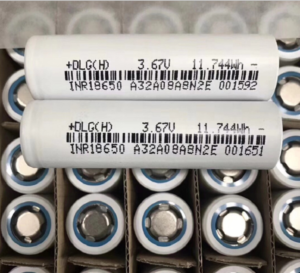
How to charge bike battery
How to charge your bike battery correctly and efficiently? Here you can learn how to charge your bike safely. Charging a bike battery, especially an electric bike, is a simple process.
Rechargeable batteries do degrade over time and usage, which can make them “go bad” in the sense that their performance and capacity diminish. This is a natural characteristic of rechargeable batteries, and it’s due to several factors:

1. **Chemical Reactions**: Rechargeable batteries, such as lithium-ion (Li-ion) and nickel-metal hydride (NiMH) batteries, undergo chemical reactions during charging and discharging cycles. Over time, these reactions can lead to the breakdown of the electrode materials and the electrolyte, reducing the battery’s ability to store and deliver energy.
2. **Cycle Life**: Rechargeable batteries have a limited number of charge and discharge cycles they can go through before their capacity starts to decline significantly. Each cycle contributes to the wear and tear of the battery’s internal components, leading to reduced performance over time.

3. **Self-Discharge**: All batteries, including rechargeable ones, experience self-discharge, where they slowly lose their charge even when not in use. This can become more pronounced as the battery ages, further reducing its overall capacity.
4. **Temperature and Storage Conditions**: High temperatures and improper storage can accelerate the degradation process of rechargeable batteries. Storing batteries in a hot environment or fully charged for extended periods can lead to quicker capacity loss.
5. **Overcharging and Overdischarging**: Rechargeable batteries can also degrade if they are subjected to overcharging (charging beyond their recommended voltage) or overdischarging (discharging to very low voltage levels). Modern battery management systems in devices and chargers aim to mitigate these risks, but improper use can still impact battery health.
6. **Memory Effect (NiMH Batteries)**: NiMH batteries can experience a phenomenon called the memory effect, where the battery’s capacity appears to shrink due to repetitive charging without fully discharging. This effect has become less common in modern NiMH batteries.
To prolong the life of rechargeable batteries and maintain their performance:
– Use the correct charger designed for the battery type.
– Avoid overcharging or overdischarging.
– Store batteries in a cool, dry place.
– If a device will not be used for an extended period, partially charge the battery before storing it.
– If possible, avoid fully charging and fully depleting the battery with each use.
If you have any questions, click on the top right corner to send us an email. Thank you very much!

How to charge your bike battery correctly and efficiently? Here you can learn how to charge your bike safely. Charging a bike battery, especially an electric bike, is a simple process.

The duration of an e-bike battery on a single charge can vary widely depending on several factors, including:
Battery Capacity: The capacity of the e-bike battery is typically measured in watt-hours (Wh) or…..

If your e-bike battery is not charging, there could be several reasons for this issue. Here are some troubleshooting steps you can follow to identify and potentially resolve the problem

Distinguish between different styles of electric bike battery replacement, allowing you to understand what batteries can be replaced with old ones and how to determine the style that needs to be replaced.
Don’t hesitate to inquiry today – all batteries are on special until 26 October 2023. Hopefully I will hear from you :)